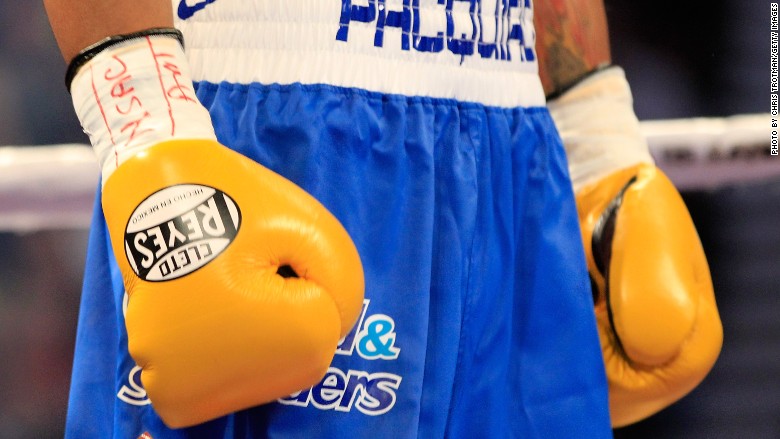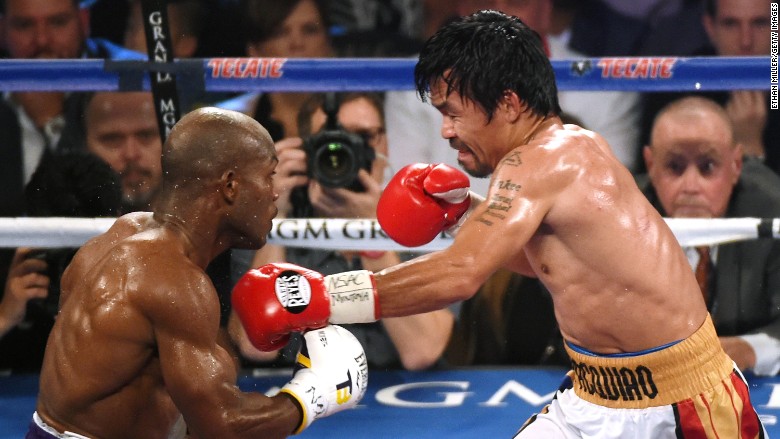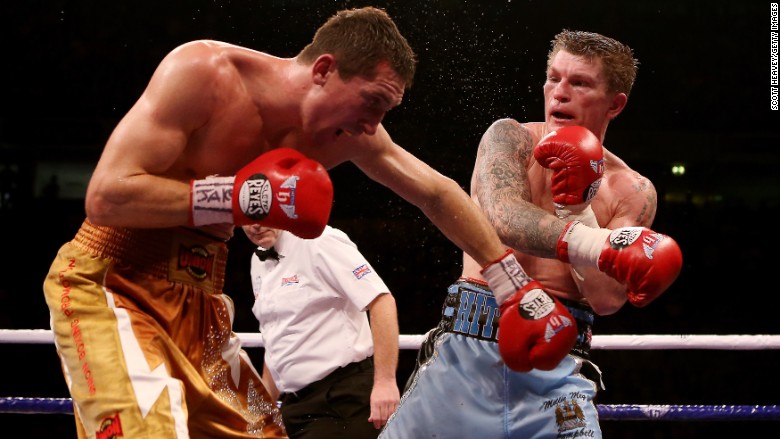
In 1978 Muhammad Ali defended his World Heavyweight title against Leon Spinks.
Ali lost that fight in Las Vegas, but ringside photographers and TV cameras captured the brand name on his gloves. The attention catapulted the gloves' makers -- a family business, based on the outskirts of Mexico City -- into the international market and into the hearts of champion boxers worldwide.
"Even in the rematch with Leon Sprinks in New Orleans, [Ali] demanded the brand Cleto Reyes," said Alberto Reyes, who inherited the family-owned business.
The company, now renowned among pro boxers, came from humble origins. It was founded by Alberto's father, Don Cleto Reyes Casto, who was an aspiring boxer at age 18 -- but after an amateur fight, Don found the pounding too hard and gave up the sport.
Instead, he became obsessed with the gloves he fought in, mending and modifying them until he was certain they were better than any other gloves on the market.
He began producing his own gloves commercially. Almost 80 years later, the red leather gloves --- made from cowhide or goatskin leather and stuffed with horsehair -- are mass-produced and sold across the globe.
"It's been an honor to continue the legacy that my father started," said Alberto, who took over the company when his father died in 1999.

These days, Cleto Reyes makes 30,000 gloves per year. The business employs 150 people and is still based in a small workshop on the outskirts of Mexico City.
The company exports close to 70% of its gloves out of Mexico across five different continents, Reyes said. Its biggest buyers are the United States, the United Kingdom, Japan, France and Italy.
Watch this: A new contender for the sports apparel crown
Known as a "puncher's glove," they're popular among world champion fighters -- including Manny Pacquiao and Juan Manuel Marquez -- for their slim, lightweight designs with minimal padding.
Former world champion Ricky Hatton says the gloves were his "all-time favorite."
"I always preferred Cleto Reyes," he said. "They were a lovely, nice, snug fit -- the padding always seemed to be very tight.
"I fell in love with them straight away. I remember saying to my trainer, 'Wow, look at these gloves. I could do some damage with them.' "

Reyes says he regularly turns down proposals from factories in Asia that offer cheaper manufacturing prices.
To him, it's important the gloves continue to boast the tag: Made in Mexico.
"I prefer to control the quality," he said, adding that he also wants to stimulate the Mexican economy by creating local jobs.
One uncertainty is how the results of the recent U.S. election could affect Reyes's business. President-elect Donald Trump is threatening to impose tariffs on Mexican imports if America doesn't get a better trade deal with Mexico and Canada.
But Reyes remains optimistic for the company's future -- saying that it has always faced political and economic challenges.
"In this regard, I trust that the quality of our products will withstand the fluctuations produced as a result of [his] policies," he said.

